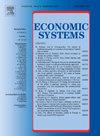Taxation with information: Impacts of customs data exchange on tax evasion in Pakistan
IF 3.3
2区 经济学
Q1 ECONOMICS
引用次数: 0
Abstract
A key challenge for developing countries is improving border taxes enforcement. This study examines whether the Electronic Data Exchange project between Pakistan and China can reduce tax evasion at the Pakistan border. This data exchange significantly reduced the trade gap in consumer goods between China’s reported exports to Pakistan and Pakistan’s reported imports from China, compared to non-consumer goods. These results are consistent with the weak self-enforcing incentives of value-added tax at the consumer stage. Moreover, the data exchange primarily reduced the trade gap by limiting the underreporting of prices rather than reducing the underreporting of quantities, partly fulfilling the project’s original intention. Further exploratory analysis reveals that the data exchange contributed to a reduction in export prices, indicating that Chinese exporters might have been absorbing a portion of the tax burden. This study suggests that using export declarations to improve tax enforcement might not increase tax revenue, as importers and exporters could alter their behavior strategically.
信息税收:巴基斯坦海关数据交换对逃税的影响
发展中国家面临的一个关键挑战是改善边境税的执法。本研究探讨巴基斯坦和中国之间的电子数据交换项目是否可以减少巴基斯坦边境的逃税行为。与非消费品相比,这种数据交换大大减少了中国报告的对巴基斯坦出口消费品与巴基斯坦报告的从中国进口消费品之间的贸易逆差。这些结果与增值税在消费者阶段的自我执行激励不力相一致。此外,数据交换主要是通过限制少报价格而不是减少少报数量来减少贸易逆差,部分实现了项目的初衷。进一步的探索性分析表明,数据交换有助于降低出口价格,这表明中国出口商可能已经吸收了一部分税收负担。这项研究表明,使用出口申报来改善税收执法可能不会增加税收收入,因为进口商和出口商可以从战略上改变他们的行为。
本文章由计算机程序翻译,如有差异,请以英文原文为准。
求助全文
约1分钟内获得全文
求助全文
来源期刊

Economic Systems
ECONOMICS-
CiteScore
4.90
自引率
0.00%
发文量
83
审稿时长
48 days
期刊介绍:
Economic Systems is a refereed journal for the analysis of causes and consequences of the significant institutional variety prevailing among developed, developing, and emerging economies, as well as attempts at and proposals for their reform. The journal is open to micro and macro contributions, theoretical as well as empirical, the latter to analyze related topics against the background of country or region-specific experiences. In this respect, Economic Systems retains its long standing interest in the emerging economies of Central and Eastern Europe and other former transition economies, but also encourages contributions that cover any part of the world, including Asia, Latin America, the Middle East, or Africa.
 求助内容:
求助内容: 应助结果提醒方式:
应助结果提醒方式:


